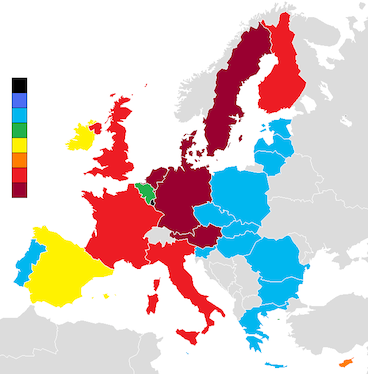Spending cuts in Brussels, and international solidarity
Spending cuts in Brussels, and international solidarity
The last few weeks have of course been emotional and tumultuous, as a result of Kartika Liotard's sudden decision to resign from the SP. Nevertheless, day-to-day work continues. Last Friday I received the good news that the United Left, the European Parliamentary political group to which the SP belongs, has decided to nominate me as a substitute member of the newly established temporary committee to prepare the ground for negotiations over the EU's multi-annual budget. This is an extremely fascinating task, because it is on the basis of this multi-annual budget that the Netherlands' contribution over the coming years will be determined, as will the EU's priorities.
Throughout last year's European election campaign the SP called for an end to be put to the senseless business of member states pumping money into EU coffers only to have it returned in the form of EU funds. This will certainly become one of the important themes: do we continue setting up a fund for every problem or should we look in a more business-like fashion at the effectiveness of such funds? In my view the principle must be that you reduce the bureaucracy presently involved in submitting requests for subsidies from Brussels.
That will be even harder to do, because in the European Parliament also – and perhaps most especially here – the left- and centre-left groups are keen to call for more and new solidarity funds. Both the United Left and the trade union movement called recently for the establishment of a new growth fund designed to aid member states in emerging from the economic crisis.
That's all well and good, but there are better ways to spend taxpayers' money. In the first place it would help if the bill for all of this went to the speculators instead of the taxpayers. That means that member states should be allowed to raise their incomes by means, for example, of a levy on banks. The European Council must take a decision on the matter this week and it appears as if they will give their approval. That would be good news, because the meeting of the countries with the world's biggest economies, the G20, recently rejected the introduction of such a levy on the global level. In that case the bank lobby was effective, but hopefully the European heads of government will stand firm.

Income and spending in the EU per country per head of the population. Red countries pay the highest net contribution, black countries have the highest income from EU moneys.
Countries which are suffering economically also gain more from debt relief (to which bankers and speculators should again contribute the most, because the securities which they have in hand must be in part written off) than from the establishment of yet another European fund.
In future I will use this weeklog to give more precise information on how the negotiations are proceeding. In doing this I'll be keeping a close eye on those parties who argue for cuts on the national level. If at the same time they are calling for ever more money to be chucked about at European level, you'll be the first to know.
- See also:
- Dennis de Jong
